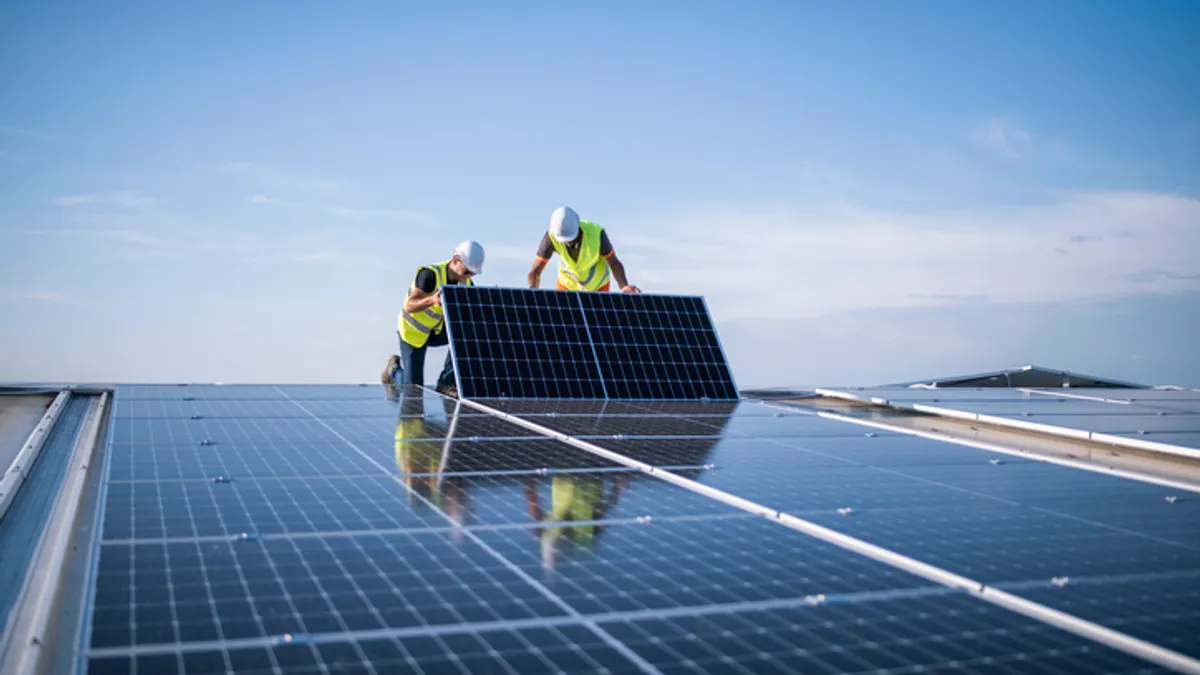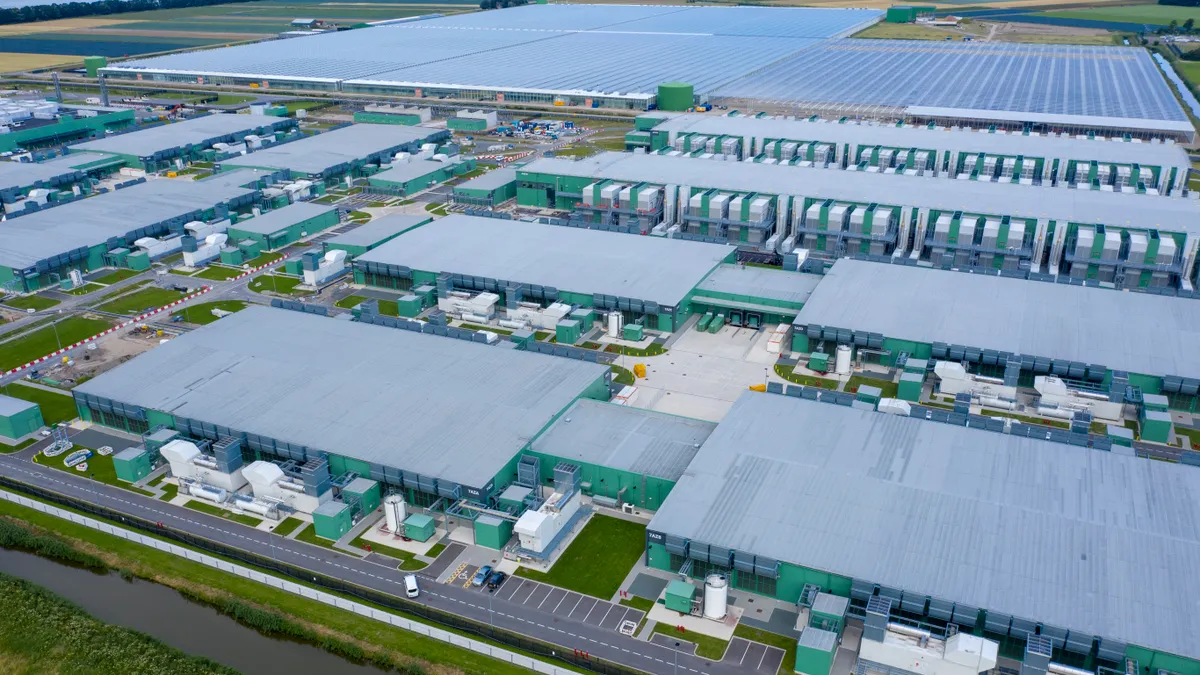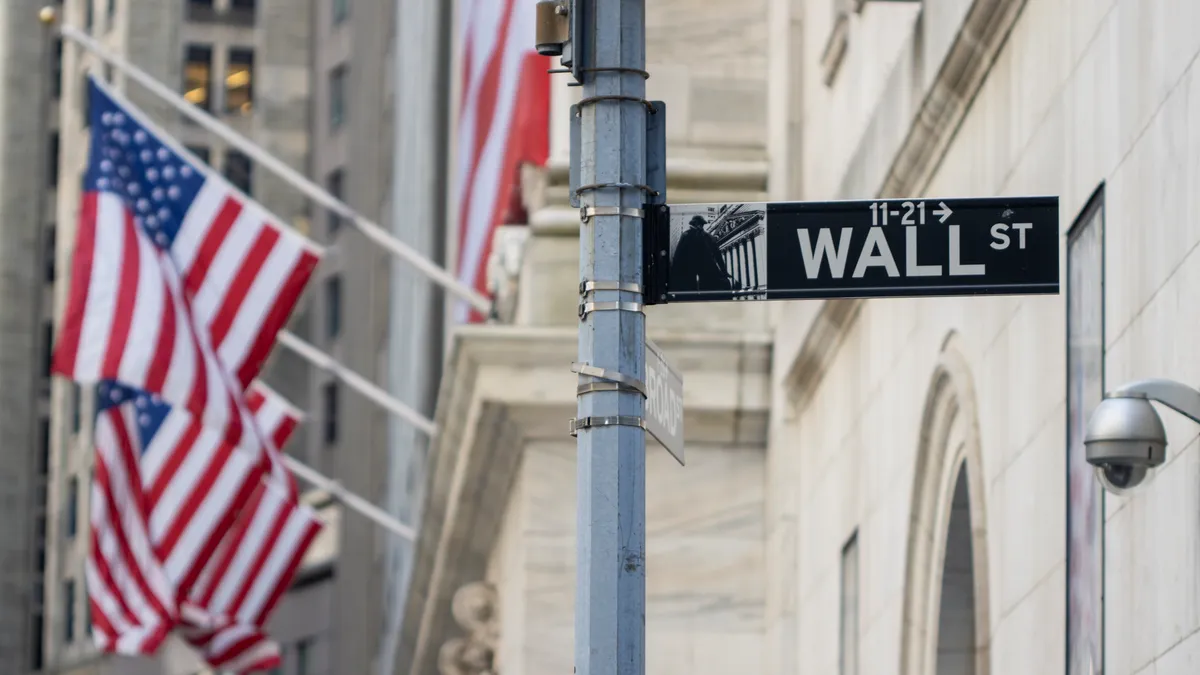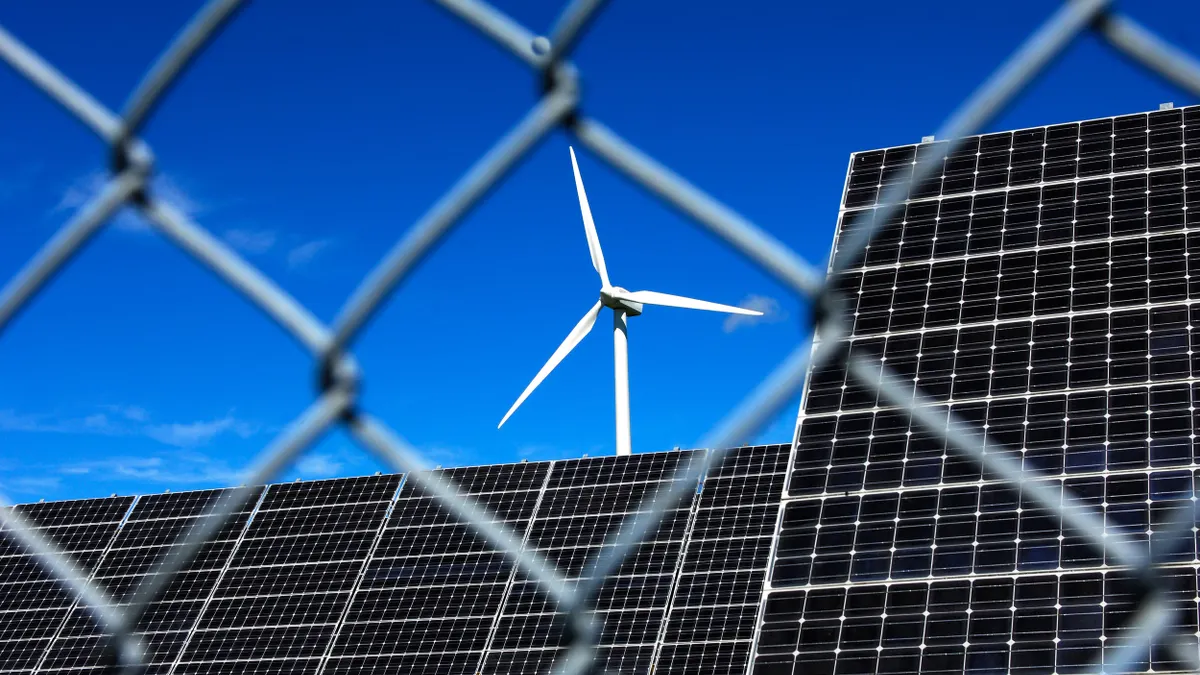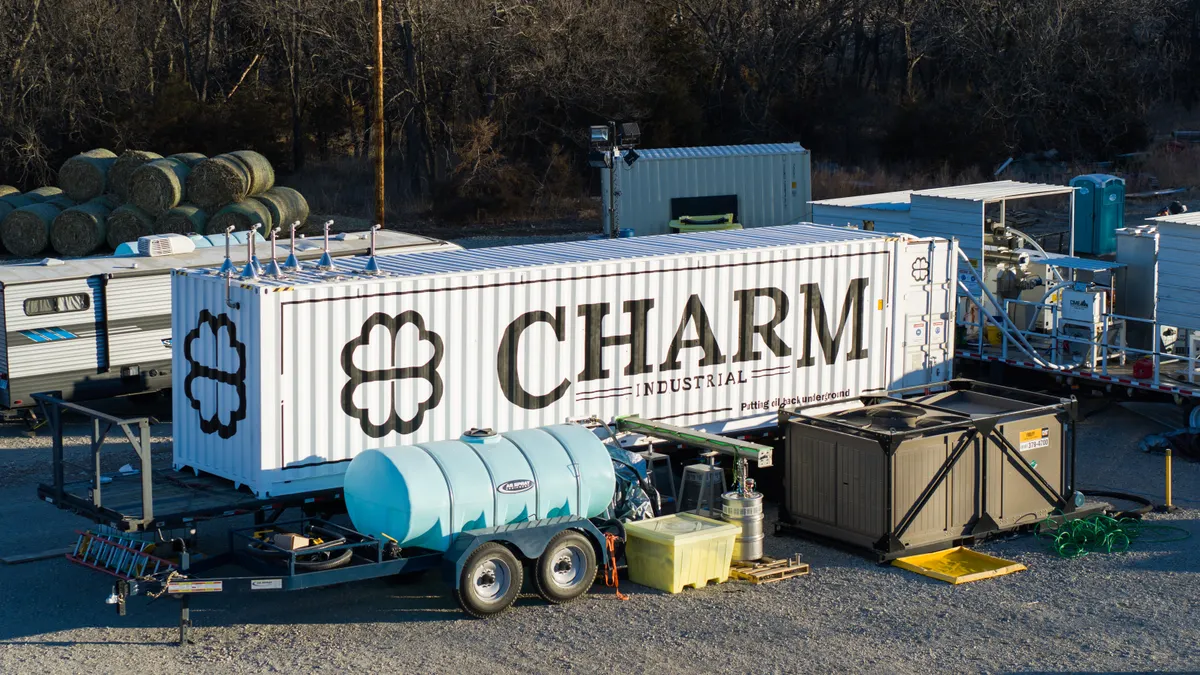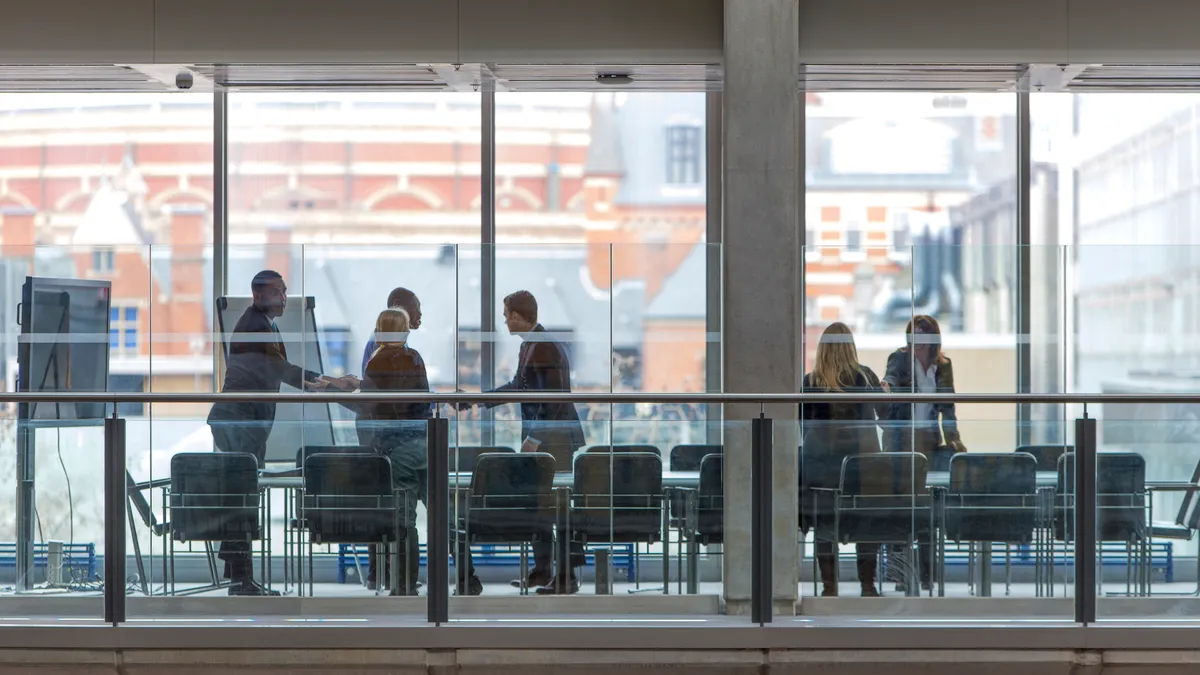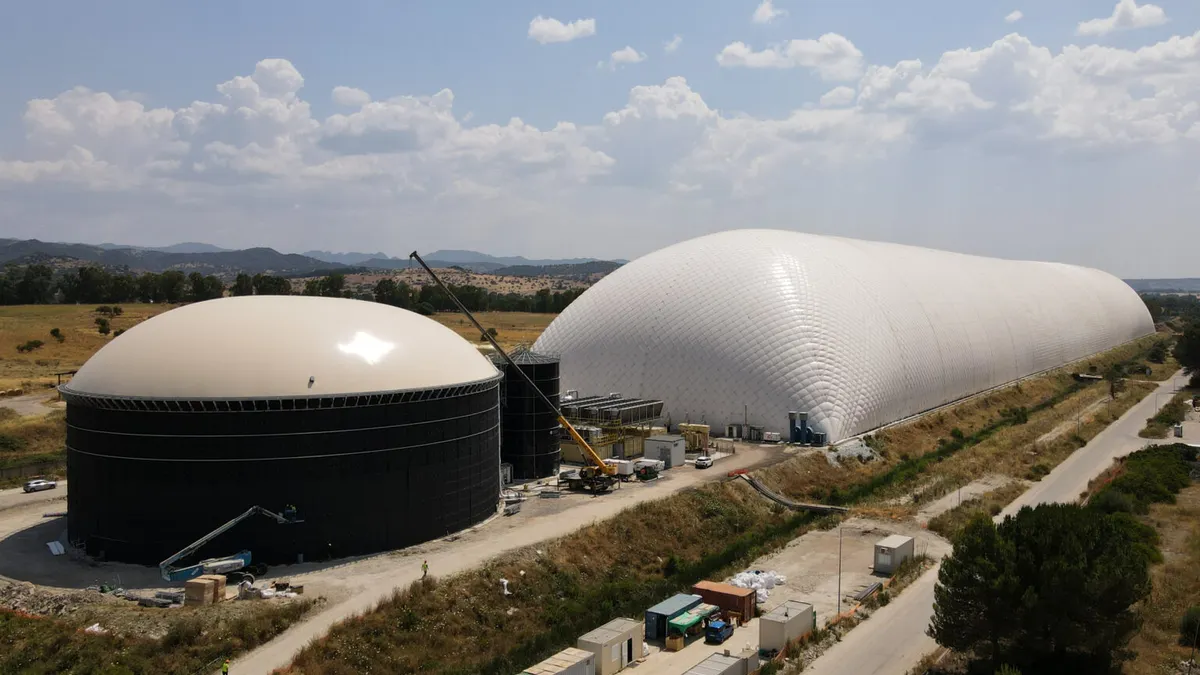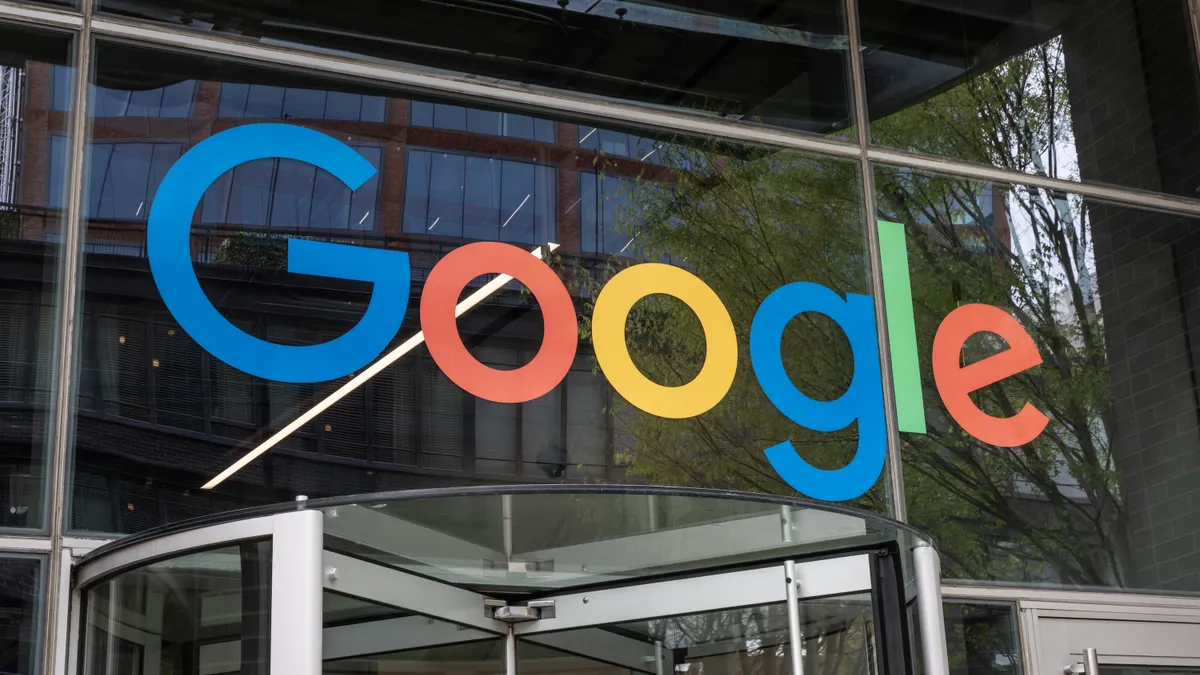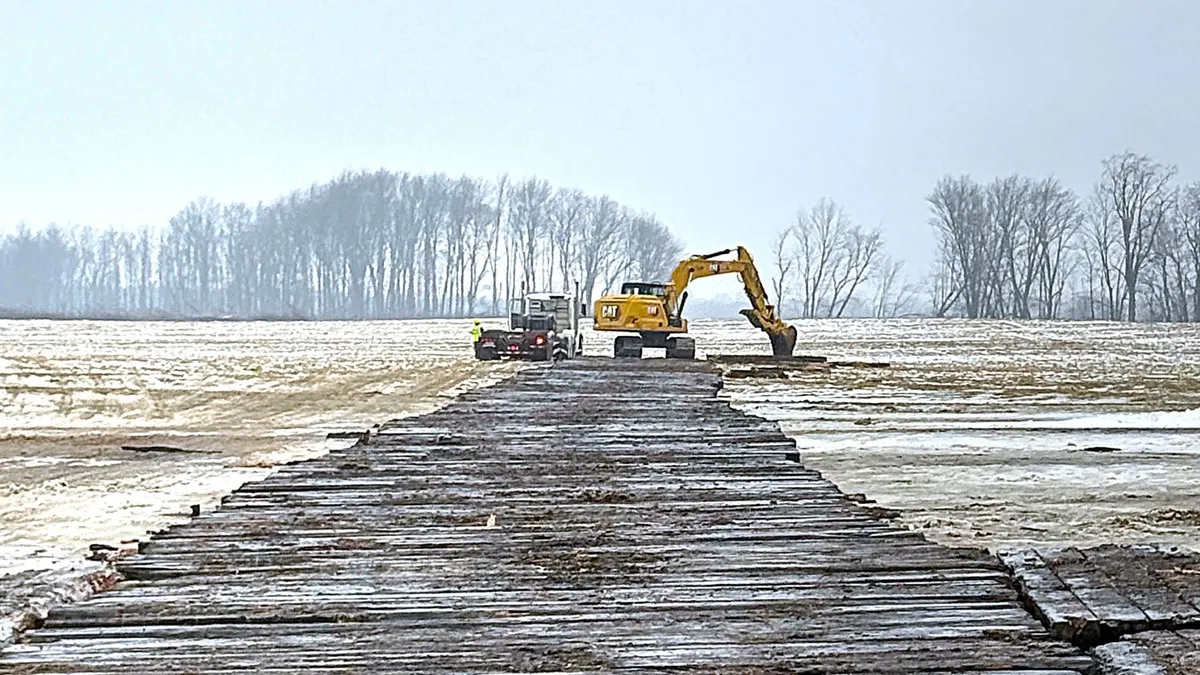Corporations looking to address ESG and sustainability concerns have had to navigate a changing political landscape, and the now-signed One Big Beautiful Bill Act has only added to those altered calculations.
The solar and wind industry was particularly hampered by the final bill text, as projects must begin construction within 12 months of the bill’s signing to qualify for the Inflation Reduction Act’s investment tax credits, according to a Crux analysis. Analysts at Jefferies predicted that utilities with “renewables-heavy” plans may accelerate their wind and solar projects to have them qualify for the rapidly sunsetting credits.
Companies looking to reach sustainability goals and find energy efficiency and resiliency at their facilities must similarly decide whether or not to accelerate or continue projects, according to Arvin Vohra, CEO of energy-as-a-service company Redaptive.
Redaptive decarbonizes commercial and industrial real estate, and Vohra told ESG Dive that while the economics of solar may change in the short term, it should rebound in the medium to long-term. However, corporations have a short clock to move forward with planned initiatives, if they hope to attain the credits.
“We do have a compelling event now,” Vohra said in an interview. “Some customers need to make decisions really fast on whether they want to move forward, or not, so construction can commence.”
Editor’s note: This interview has been edited for length and clarity.
ESG DIVE: What have you witnessed so far this year in terms of deal volume for Redaptive and across the industry?
ARVIN VOHRA: Our deal volume has actually been pretty good. We've been doing this since 2014 so we've been in all kinds of administrations. Fundamentally, what Redaptive sells, and what we believe, is that sustainability is a cash flow positive exercise. We pitch in terms of dollars and cents, [and say,] “Here's the business value that we're providing you as our end customer.”
As interest rates are higher, budgets are tightening. Companies are looking to save money, and Redaptive provides a solution that meets that need. So we've actually seen pretty good conversion in this market.
Have you heard anything from your clients about broader concerns or issues they've had navigating the policy changes?
Yes, absolutely. The One Big Beautiful Bill directly took a hit on solar, and so [we expect to] see solar not pencil out as much [financially] on our clients’ locations. That's something that we do as an expansion product for customers that start off with an electrical mechanical upgrade with us.
That being said, electrical mechanical infrastructure is so essential to these buildings — you need to have lighting and HVAC to run a building. One thing that's guaranteed is that, at some point, electrical mechanical assets fail — they get old, they consume more energy than they're supposed to. So, that's something that we'll double down in and focus on, which is our roots.
Solar was an expansion product, and it had promise for us, but I think you're just seeing a strategic shift on what we enable for our customers internally in reaction to the bill. I'm not going to sit here and say, it's business as usual and everything's great. We are shifting as a result of the change that we've seen, but it's not one that's concerning for me from a firm business viability standpoint.
When you say not as many solar products will pencil out, what does that mean for companies looking to electrify and how do they deal with real estate energy portfolios? What is required to adapt to that change?
Well, here's the thing, when I say [solar] is not going to pencil out, [or be profitable]. I mean that in a very short term way. Because I actually think that in the medium term, solar is going to pencil out, but not for a reason that anyone's probably very excited about.
If you have a 30% [investment tax credit], and that ITC goes away, of course there's a 30% impairment in the economics, and it's going to be harder for projects that would have [been profitable] to pencil out. In certain areas, where utility rates are high, it's going to pencil out either way. It may not be as awesome economically, but it's still going to be a cash flow positive value proposition for you to go and put solar on your roof.
From a macro standpoint, here's what's happening from my viewpoint. You have a grid that's effectively built in the 1950s, and you're putting power onto this grid. You can't bring power online fast enough. So, we have a supply issue, and that supply issue is exacerbated by bringing back manufacturing to America and AI in America. And geopolitically, globally, we want to win the AI war, if you will, as America. So you need to have energy for that, and there's only so much that this grid can take.
So, what's going to happen is AI — which has a really good return on their investment, a lot of money's flowing there. People are making good margins in tech. They're very price inelastic to the price of power. You can double the price of power and AI is still going to grow.
The punchline is that utility rates are going to go up [and potentially] up by 25-30%. So in the near-term solar is not going to [be profitable], in the longer term solar is going to start to pencil out again, but it's going to be because utility rates are so much higher than they are today. And there's just no other way.
How have Redaptive’s conversations with corporations and manufacturers gone after the signing of the One Big Beautiful Bill?
There's a lot less of an emphasis on solar. Now, have we seen the full impact of that? Not necessarily right now, because it just got signed, and as long as construction commences in a certain point of time, we'll be in a position where we can monetize the credits for our customers. But longer term, what's happening is clients are looking more on the efficiency side, until the utility rates go up, and once the utility rates go up, then more solar is going to start to pencil.
Do you have an early sense across your portfolio of what projects in the pipeline would still be able to qualify any percentage of products in the pipeline that would still qualify credits under OBBB or are generally on track to start construction by law’s safe harbor date?
All of our projects are on track to start construction by that date in our pipeline. We do have a compelling event now. Some customers need to make decisions really fast on whether they want to move forward, or not, so construction can commence. As you can imagine, Redaptive is not in the business of taking the risk of monetizing the [investment tax credit for a client], when they cannot sign for the next six months. They need to sign now. If they don't decide to move forward right now, it's gonna be very hard for them to commence implementation in time.
As you're getting that market pulse, what is the general consensus?
The general vibe right now is, if something makes sense to do, from an economic standpoint, [clients are] going to move forward and get it done prior to the window closing. That's what we're seeing, and I think that's the focus right now as well, in terms of the conversations we're having with our customers.
What's going to happen after what's immediately in the pipeline, in my opinion, is that those conversations are going to shift more towards efficiency and lighting and mechanical. I don't have the data points to substantiate that, but I've done this now for 12 years, and I've seen different cycles.
Given your experience with the first Trump administration and the market before the Inflation Reduction Act, what lessons did you glean from that period? How has working with companies at that time been useful so far this year? Is there anything you thought would be similar that is different?
The rhetoric is what's changing. We've always sold based on the cash flow positive, or I'll call the total lifetime value based on resilience. There was a point where, particularly, we were selling cashflow positive and sustainable, and now we're going back into selling cash flow positive.
I joke with my team internally, two things that are guaranteed in addition to death and taxes, is something cash flow positive is going to sell and electrical mechanical infrastructure in buildings will fail at some point. We're focused on those two things, and those two things are administration agnostic and human opinion agnostic.
I don't care whether you believe in climate change or not. Our mission is sustainability-oriented as a business, and we're very passionate about the sustainable impact of what we do. But in the end, you can't deny the value proposition of this being something that's cashflow positive, and you need to take care of your electrical mechanical infrastructure to actually be able to build it.


